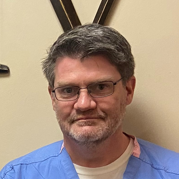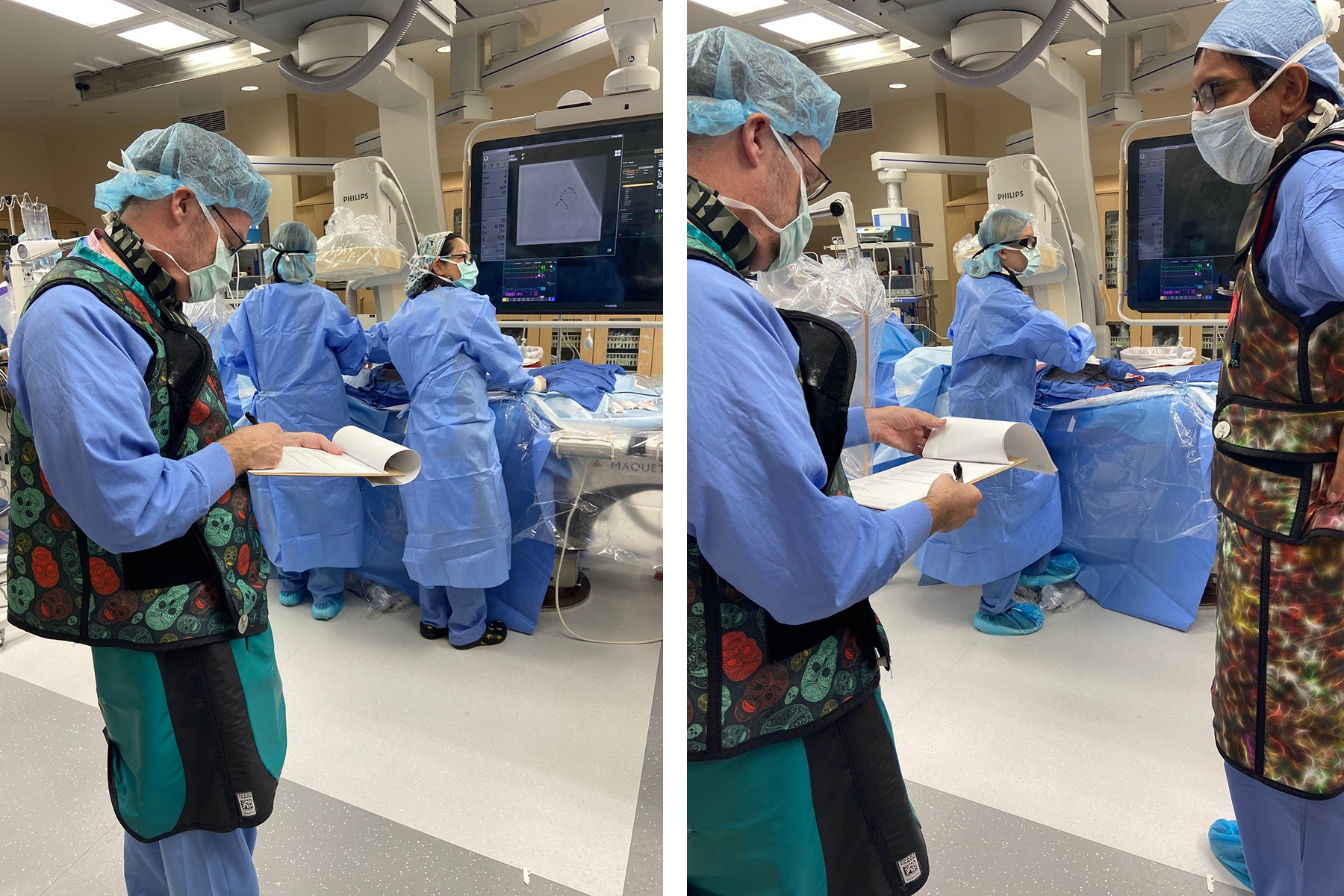CV Team Career Perspective: Cardiology Research Coordinator
Can you imagine still using urine as an antiseptic or giving boar bile enemas? How about the days in cardiology where exercise testing was done with an EKG before climbing a flight of stairs and then an EKG after? I am sure we are all thankful that we have better pharmacological treatments and advanced procedures.1 The field of cardiology could not have gotten there without research.

David Bailey
We all benefit from research but we often overlook an integral part of our cardiovascular team that specializes in research – our research coordinators. As someone who recently learned the intensity of research studies, I wanted to highlight our research coordinator, David Bailey.
David, a cardiology research coordinator at Colorado Heart and Vascular, has been in research most of his career. In high school, he recalls his biology teacher calling the students "scientists" and that resonated with him. He attended Drexel University and one of his first jobs was at Moss Rehab Hospital, which solidified him as a clinical research agent. Cardiology was a new venture for David, and he has taken to its field, team attitude, and wonderful patients.
What do you like best about cardiology research?
I think the best thing for me is being able to actually see patients improve with medical care, whether it's research or not. I have a great deal of patient contact with my position and it is very rewarding to see their health improve. I also enjoy how rapidly cardiology is advancing. In only one year, I have participated in a few studies that have the possibility of changing the standard of care for our patients.
What was the hardest part of transitioning to cardiac research?
I came into cardiology with medical and health care knowledge but not really in cardiac. There was a lot of medical terminology, interpretation skills, and general cardiology knowledge that I was lacking. I love to learn but it can often be stressful not understanding it all.
What is the biggest difference in cardiology research compared to other areas?
Cardiology is the first research I have encountered where you screen and enroll a patient an hour before they are scheduled to have a procedure. This means approaching patients, who are already feeling overwhelmed and trying to explain a clinical trial in a shortened time frame. From the patient's perspective, they are on the edge of a procedure that may change their quality of life or even save their life. At that moment, they are rarely thinking about supporting a clinical trial. It means being able to walk away from a lot of potential patients simply because their minds cannot process everything that is happening to them at once.
Can you describe how you are part of the cardiac team?
We are participating in several trials that take place either in an emergency department (ED) setting or immediately prior to the procedure. The only way my team and me are able to get our work done is by making sure all the moving parts of the hospital are aware and know what are doing. When in the ED, we step up as part of the cardiovascular team, which is only possible because we have met the ED staff, explained our role, and gotten their buy-in. Communicating with all the parties ahead of time allows us to seamlessly mesh with the environment when it comes time to enroll patients into research.
Any other thoughts?
I feel fortunate to work for a cardiovascular group of physicians and advanced practice providers that are very interested in research. They give me broad latitude to do my job and are genuinely interested in advancing the field of cardiology and supporting my role. I truly enjoy working for a group who is so engaged, available and interested in the research program!
David is truly part of the cardiovascular team! He is respected by his colleagues and is crucial for ensuring the adequacy of research. I encourage you to find your research coordinator and thank them for their dedication!
References
- Silverman E. A view from the millennium: the practice of cardiology circa 1950 and thereafter. Journal of the American College of Cardiology 1999;33:1141-1151.



